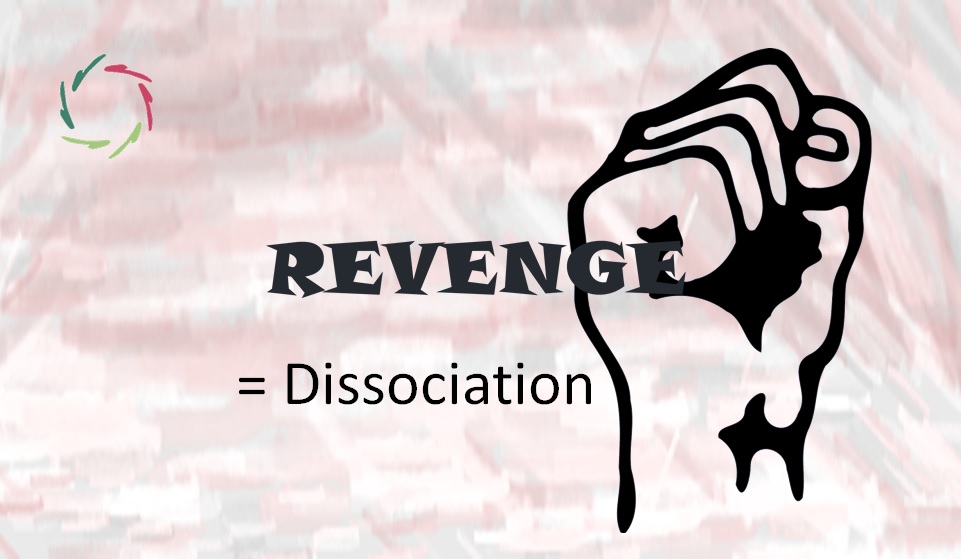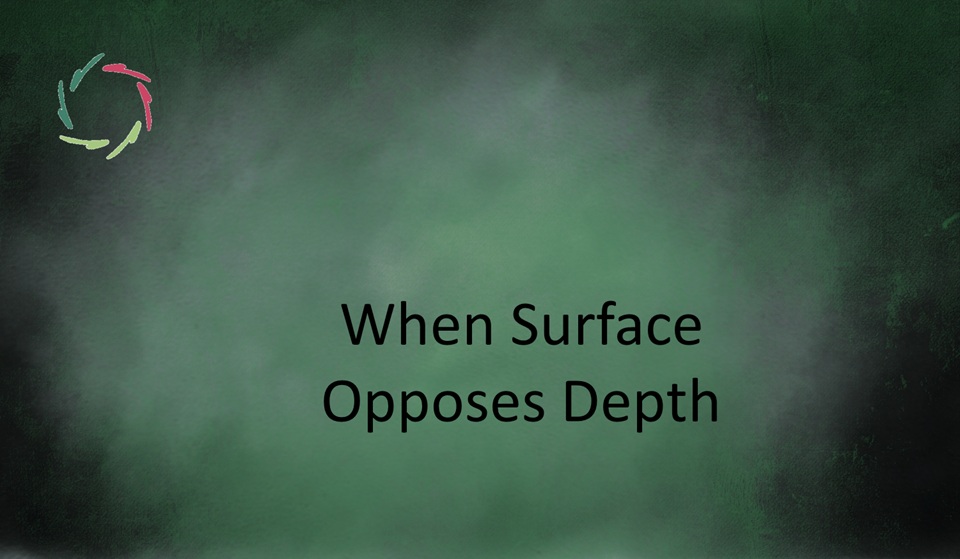Revenge = Dissociation

The feeling of revenge needs to be taken seriously in order to transcend it. What has been lost should be restored ― in a different way.
Revenge results from the feeling of having lost something.
Something has been taken at the meaning level. Revenge is not about the thing itself but the meaning. What one seeks to take back is also at the meaning level.
Through losing something meaningful, the sense of wholeness is diminished. Things are out of balance. It seems as if life has been put on hold. Being revengeful can thus be seen as an urge to become whole again and ‘go on with life.’
This is the feeling of ‘getting even.’ Someone took something from me; now I take something back. At the meaning level, what has been taken, is being taken back.
Examples
The family of the victim sees that the murderer is punished. They feel vindicated. Justice has been done. Now they can ‘go on with life.’ One can purport that this doesn’t bring the murdered person back to life. Indeed, but revenge doesn’t seek that.
In the like-named Shakesperean play, the jealous Othello seeks revenge for having lost his idea of being loved. He wants to restore his wholeness through revenge but, unfortunately, doesn’t find it.
An eye for an eye; a tooth for a tooth. In a vendetta, one can see that something is sought of equal symbolic worth.
Post-9-11 wars were, to many, also acts of revenge. It would have been better to Deeply Listen first ― which has +/- never been done in any serious way. [see: “Deep Listening“] As a result, many people have suffered, including soldiers with post-traumatic stress.
Revenge is a negative feeling in all its forms.
Whether it’s between neighbors, family members, or countries, it generally evokes counter-revenge and so on until the energy gets drained.
Revenge hampers growth and heightens suffering. That makes it in my view the reverse of Compassion. [see: “Compassion, Basically“]
Yet revenge can also feel like justice.
Even more, some feel it as the basis of justice. That looks like a stark contradiction, doesn’t it?
Indeed.
Yet, revenge is always related to inner dissociation. [see: “Inner Dissociation is NEVER OK“]
Revenge dissociates and is innerly dissociating.
This is a vicious circle by itself ― dissociation heightening dissociation.
That is why it also leads to counter-revenge.
Not taking revenge gives the impression of weakness.
Weakness! God forbid!
In some religions, God is the revengeful one. That seems propitious for those who have Him on their side against the enemies ― who may also have Him at their side. Hmm… Something doesn’t fit. Yet, many people have been going on – and still do – in this vein.
I see revenge as confusion.
It’s good to show your strength, especially your Inner Strength, in appropriate situations, but please, do it in other ways, even if only for the sake of self-worthiness.
Not readily seeing other ways must be the result of confusion. More precisely, I see this as the frequent confusion between weak – gentle – hard – soft. [see: “Weak, Hard, Strong, Gentle“]
Revenge is hard and weak. What is sought should better be sought in a strong and gentle way.
That is also a genuinely civilized way.
Support
Supporting individuals in finding this is a task for mediation. [see: “AURELIS Transformative Mediation“]
Supporting peoples in the same is a task for diplomacy. [see: “AURELIS Values in Diplomacy“]


